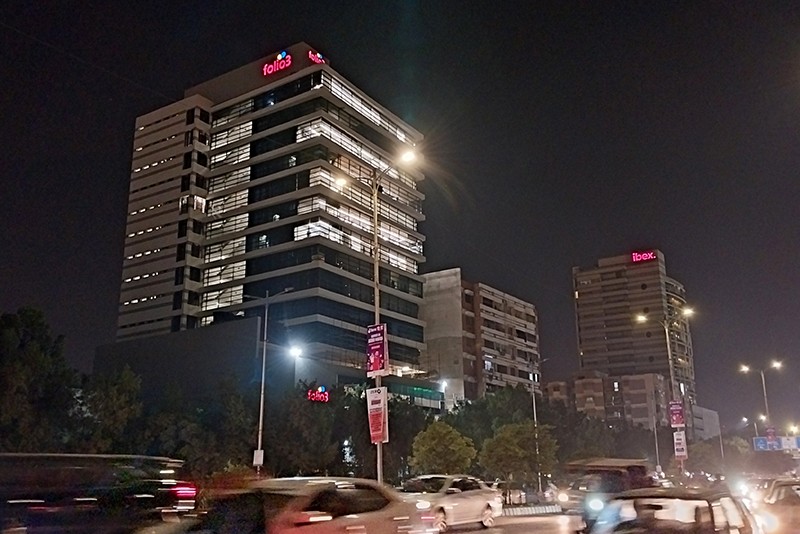
Pakistan’s business policy advocacy platform Pakistan Business Council (PBC) last week warned that several multinational companies (MNCs) are planning to relocate their back offices from the country, with many having already done so recently.
Pakistan’s leading English daily Dawn reported the PBC warning came amid a report by the Dubai Chamber of Commerce that 3,968 Pakistani companies registered their entities in Dubai between January and June 2024 — making Pakistan the second-ranked country on the list.
The figure was also 17 percent higher than the 3,395 firms registered during the same period in 2023, as per reports. The Dubai Chamber of Commerce last year registered 8,036 new Pakistani businesses.
The rise in Dubai-based Pakistani businesses highlights a growing exodus from a country already grappling with severe unemployment and sluggish economic growth, according to Dawn.
As hundreds of thousands of skilled and unskilled workers have already left Pakistan, millions more are reportedly seeking opportunities abroad.
Pakistan’s PBC in a statement said that many multinational companies are either planning to relocate their back offices from Pakistan or have already done so, as the reported imposition of a firewall causes widespread internet disruptions across the country.
According to the business policy body, this migration reflects a deepening lack of confidence in the Pakistani government’s economic policies.
Key factors contributing to this trust deficit include the high cost of doing business, political uncertainties, soaring electricity costs, and deteriorating law and order, the PBC noted.
“While we struggle with the costs of idle capacity in power generation leading to unemployment and loss of exports and tax revenue, we now have to contend with the threat of idle capacity in the emerging software sector due to poor execution of a firewall,” the PBC said in the statement.
The business council added that the tech industry in the country has already expressed serious concern over the recent internet slowdown, warning that these disruptions could cost Pakistan up to $300 million, while the business policy council asked the authorities concerned to go back and get the right firewall or learn to apply it without creating an unnecessary impact on employment and exports.
“IT and IT-enabled services, besides agriculture and tourism, offer a valuable opportunity to achieve the PM’s export target over the next three years. High-speed connectivity is also vital for the domestic economy,” the PBC statement read.
Besides PBC, the Overseas Investors Chamber of Commerce and Industry (OICCI), which serves as the national point of reference for foreign investors in Pakistan, also warned that frequent internet disruptions in the country could derail the nation’s economic progress.
The Pakistan Software Houses Association, a non-profit functional trade body and registered association for the IT industry in Pakistan, said in a statement that these disruptions are not mere inconveniences but a direct, tangible and aggressive assault on the industry’s viability, inflicting devastating financial losses estimated to reach $300 million, which can rise exponentially.
According to an opinion piece published in Al Jazeera earlier this year, the internet has become a battleground in Pakistan, and “not one fought with tanks and missiles but with throttled bandwidth and targeted shutdowns.”
The opinion piece said that during the first two months in 2024, Pakistan’s 128 million internet users were repeatedly plunged into digital darkness, facing disruptions to mobile networks and social media platforms.
Pakistan, which has a long history of internet disruptions, particularly during periods of political turmoil, ranks third in the world for imposing nationwide restrictions.
The South Asian nation witnessed a four-day blackout after the arrest of former Prime Minister Imran Khan in 2023, and access to social media applications have allegedly been blocked on more than six occasions over the last year alone.
Alarmingly, each measure was carried out with nary a whisper of warning or explanation from the Pakistan Telecommunications Authority, the telecom and internet regulator, casting serious doubts over the rule of law and the country’s ambition to expand its digital economy, according to Al Jazeera.
Al Jazeera’s opinion piece said internet censorship not only violates fundamental rights to freedom of expression and access to information but also hinders economic activity and disrupts essential services.
A 24-hour suspension of internet services leads to a financial setback of 1.3 billion rupees ($15.6 million), equivalent to a remarkable 0.57 percent of Pakistan’s average daily gross domestic product (GDP), according to the Pakistan Institute of Development Economics.
According to a recent Dawn editorial, the five stages of internet governance in Pakistan seem to be as follows: curb, deny, double down, reluctantly admit, and repeat.
By now, nearly every smartphone user in the country has experienced interruptions to WhatsApp, the Meta-owned messaging app that has become indispensable to billions of people the world over, as per the Dawn editorial.
Thousands of Pakistani users have reported outages and interruptions in connectivity over the past week, and most reports have been about trouble with calls and messages, including voice notes, multimedia content and downloading problems over mobile data, according to Downdetector, an online platform that tracks internet disruptions.
This means that everything, from important legal documents to the customary ‘Jashn-i-Azadi Mubarak’ messages, is getting lost in the ether as cellular providers, undoubtedly at the behest of the authorities, continue to throttle connectivity, the Dawn said in its editorial.
While Pakistan grapples with its many economic woes, this connectivity crisis threatens to sap whatever economic potential is left in the services industry, as per reports. “Given our earlier failed experiments at banning YouTube and Facebook, it is about time we learned not to throw the baby out with the bathwater,” the Dawn’s August 15 editorial read.






